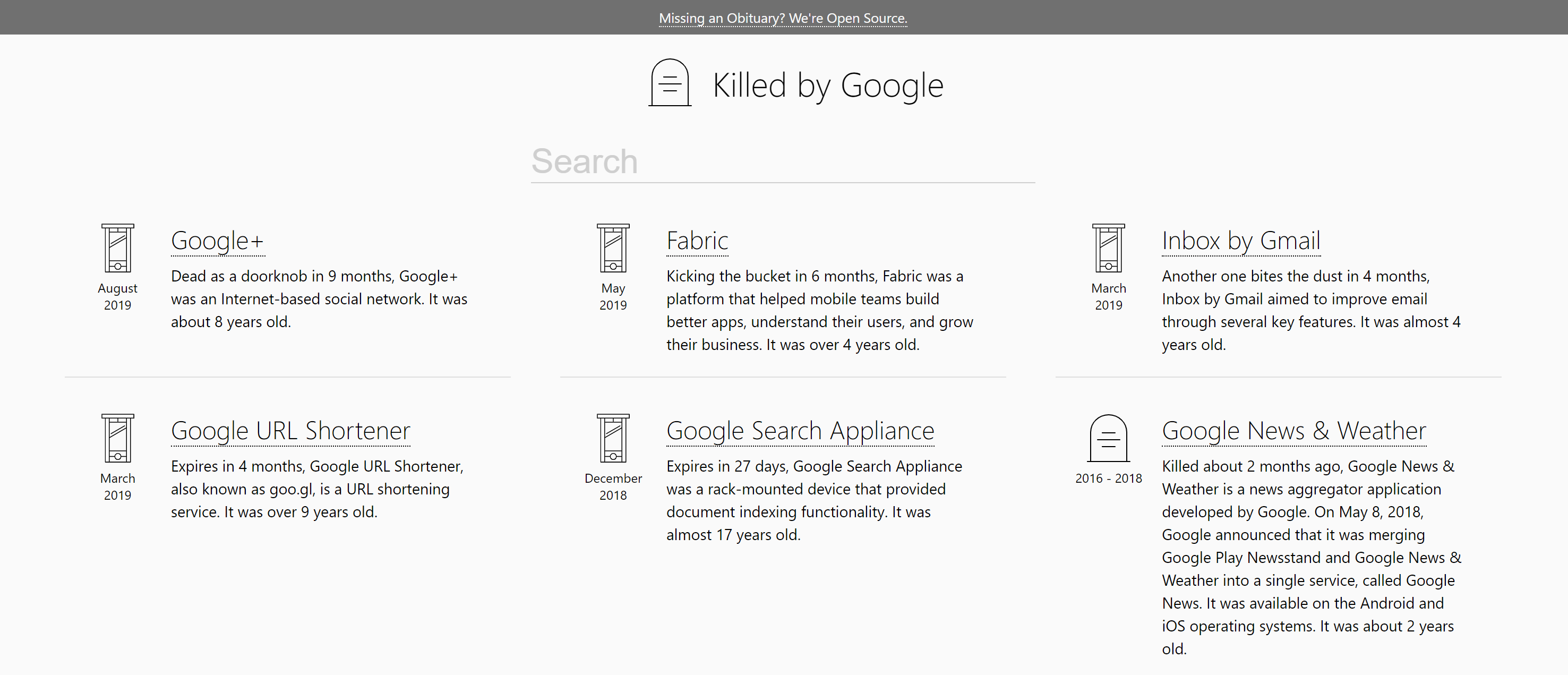Pay your respects at the Google Cemetery, a home for all of Google's dead products and services
Google isn't known for restraint when it comes to creating new products and services (especially ones with features that overlap existing properties), but it's equally notorious for killing off products — sometimes even those with devoted user bases (e.g. Inbox by Gmail). So notorious, in fact, that not one but two different online resources have popped up to highlight all of Google's many dead products. Let's take a stroll down memory lane, shall we?
The first platform, Google Cemetery, offers up a list of 44 different products "sent into oblivion" along with the reason that each individual product died. For instance, Google+ had low user engagement and a data vulnerability. RSS/Atom feed aggregator Google Reader, which died in 2013, had a "loyal but declining" following and Google wanted to focus on fewer products. Google Answers (2002-2006) was an online knowledge platform that, you guessed it, died due to lack of users.
The second resource, Killed By Google, is even more comprehensive. The open-source site features well over 100 tombstones, beginning with Google Deskbar (2003-2006) — a small inset window on the Windows taskbar that allowed users to search without leaving the desktop — and ending with Google News & Weather. Below, see a few more dead products, some of which will hurt to remember more than others:
But is it fair to hassle Google for all of its dead products? David Lieb, product lead on Google Photos, doesn't think so. When Alexis Ohanian's partner at Initialized Capital, Garry Tan, suggested the Google Cemetery was a good reminder that any service by a large tech company (even one used by millions) could be killed with little mercy, Lieb tweeted that he didn't agree.
"Bigcos make decisions based on the same things startups do: 1) Is this what people want? 2) Is there a better product for this need? 3) Does this help the company survive and grow?" Lieb said.
I've built and sunset products at both a startup and a bigco, and I disagree with this sentiment. Bigcos make decisions based on the same things startups do:
1) Is this what people want?
2) Is there a better product for this need?
3) Does this help the company survive and grow? https://t.co/MMja68szN5— David Lieb (@dflieb) November 22, 2018
Lieb doesn't really address Tan's underlying point, though, which is that by the very nature of Google's size, the company often cares less about a given product than its users — a frustrating dynamic.
Ultimately, though, some sunsetting decisions make more sense than others. In many cases, Google is consolidating its products and reducing feature overlap, which is useful. Google News & Weather and Google Play Newsstand were recently merged into Google News, for instance, without any major loss for the consumer. But in other cases, like the death of Inbox by Gmail, some beloved and unique features (like bundling and pinned items) are seemingly lost to the winds of time.
At least now you can swing by the graves of those products to pay your respects — and hey, while you're at it, keep Google Hangouts in your thoughts. It hasn't been looking well lately.
#Google #Android #Smartphones #OS #News @ndrdnws #ndrdnws #AndroidNews

